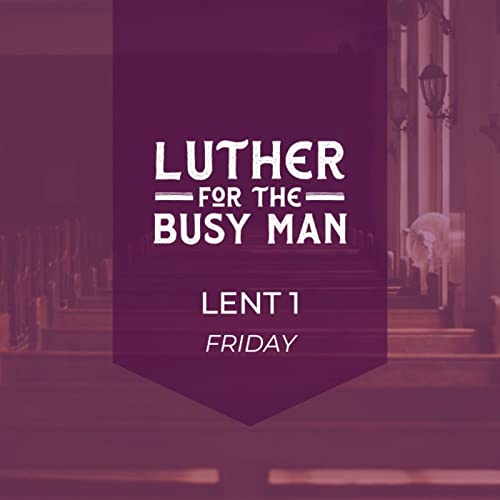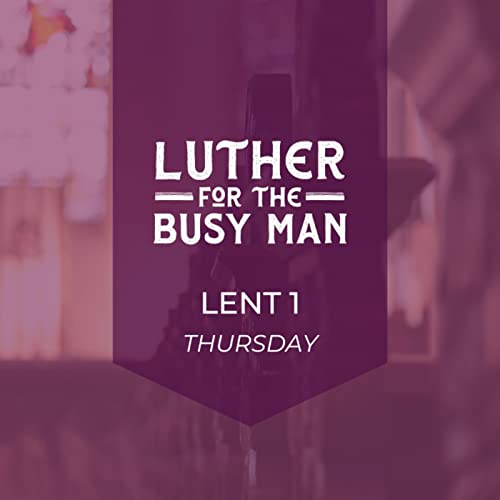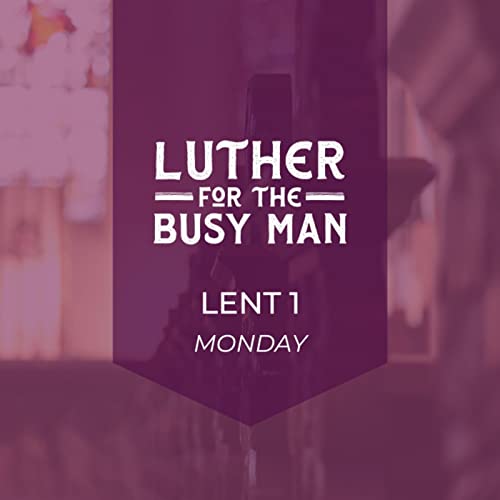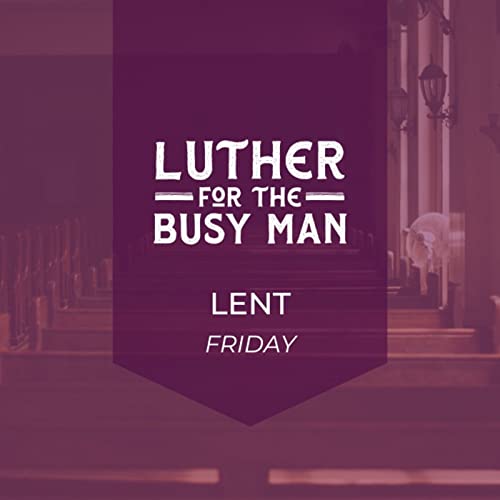LENT - WEEK 1 - THURSDAYLESSON: EPHESIANS 6:10-17
Jesus said to him, “Again it is written, ‘You shall not tempt the Lord your God.’” Matthew 4:7
The devil’s second temptation is quite different from the first one but quite similar to it in its absurdity.
Here the devil teaches us to tempt God, just as he urged Christ to throw Himself from a pinnacle of the temple. This was quite unnecessary in any case, because there would probably have been a good set of stairs available on which He could have climbed down. That the devil here tried to induce Christ to a temptation of God is quite clear from Christ’s reply.
Wherever the devil comes upon a heart that trusts God in the hour of want and need, he quickly abandons concerns for bodily welfare and greed and makes his assault from quite a different angle. “If you want to be all spiritual and trusting,” he says, “I’ll give you some help.” He proceeds to come at you from another direction: he tries to get you to put your faith into something that God has not commanded you to believe and does not want you to believe.
It may be that God has supplied your house with bread, as He does annually throughout the whole world, and you refuse to make use of it, making want and need for yourself, declaring, “We are to put our faith in God. I will not eat the bread but wait till God sends me bread from heaven.” That would be tempting God. For He does not tell you that you must still hope for what you already have and keep on working for it. How can you hope for something you already have?
SL.XI.539,17-18
AE 76,370-71
PRAYER: Lord God, heavenly Father, our old evil foe, the devil, was cunning enough and brazen enough to attack even your Son, our Lord Jesus Christ. When he tempts us into unbelief and wrong beliefs, you have shown in our Son’s example how to overcome the devil’s temptations. Grant us your grace and strength to do this in the name of Jesus. Amen.
 Feb 27 20263 min
Feb 27 20263 min Feb 26 20263 min
Feb 26 20263 min Feb 25 20263 min
Feb 25 20263 min Feb 24 20264 min
Feb 24 20264 min Feb 24 20263 min
Feb 24 20263 min Mar 9 20253 min
Mar 9 20253 min Feb 21 20263 min
Feb 21 20263 min Feb 20 20264 min
Feb 20 20264 min
